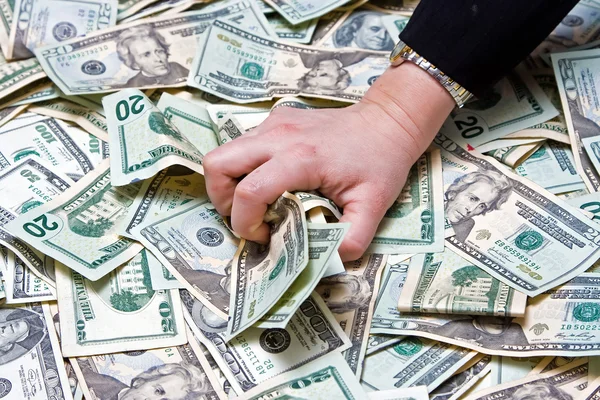Below is Pope Francis’ complete catechesis on greed in the General Audience this Wednesday, January 24:
Dear brothers and sisters, good morning!
We continue the catechesis on vices and virtues, and today we are going to talk about greed, that is, that form of attachment to money that prevents human beings from generosity. It is not a sin that only concerns people who have huge assets, but a transversal vice, which often has nothing to do with the current account balance. It’s a disease of the heart, not the wallet.
The analyzes that the desert fathers carried out on this evil brought to light how greed could also take over the monks, who, after having renounced enormous inheritances, in the solitude of their cell, had tied themselves to objects of little value: They didn’t lend it, they didn’t share it and even less were they willing to give it away. These objects became a kind of fetish for them that was impossible to get rid of. An attachment to small things. A form of regression to the phase of children who grab the toy repeating: “It’s mine! It’s mine!”. An attachment that takes away freedom. This statement hides an unhealthy relationship with reality, which can lead to forms of compulsive hoarding or pathological accumulation.
To recover from this illness, the monks proposed a drastic, but nevertheless very effective method: death meditation. No matter how much a person accumulates goods in this world, we are absolutely sure of one thing: that they will not fit in the coffin. We cannot take the goods with us. Here the meaning of this vice is revealed. The bond of possession that we build with things is only apparent, because we are not the masters of the world: this land that we love is not really ours, and we move through it as foreigners and pilgrims…”. (cfr Lev 25,23).
These simple considerations make us understand the madness of greed, but also its most hidden reason. It is an attempt to exorcise the fear of death: it seeks security that in reality falls apart the moment we grasp it. Remember the parable of the foolish man, whose field had offered an abundant harvest, and that is why he falls asleep thinking about how to enlarge his warehouses to fit the entire harvest. That man had calculated everything, he had planned the future. However, he had not considered life’s most certain variable: death. “Fool,” says the Gospel. “This very night your life will be demanded of you. And the things that you prepared, for whom will they be? ( Luke 12:20).
In other cases, it is thieves who provide us with this service. Even in the Gospels they have a good number of appearances, and although their actions are reprehensible, they can become a healthy admonition. This is what Jesus preaches in the Sermon on the Mount: “Do not store up treasures on earth, where moth and rust consume them, and thieves break through the walls and steal them, but store up treasures in heaven, where neither moth nor They destroy rust, and where thieves do not penetrate or steal ( Mt 6:19-20). Always in the stories of the desert fathers, the story is told of a thief who surprises the monk while he sleeps and steals the few goods that he kept in his cell. When he wakes up, not at all fazed by the incident, the monk sets out on the thief’s trail and, once he finds him, instead of claiming the stolen goods, he gives him the few things he has left saying: “You forgot to take this!”.
We, brothers and sisters, can be lords of the goods we possess, but often the opposite happens: they are the ones who ultimately own us. Some rich men are not free, they do not even have time to rest, they have to look over their shoulders because the accumulation of assets also requires their custody. They are always distressed because a heritage is built with a lot of sweat, but it can disappear in a moment. They forget evangelical preaching, which does not affirm that wealth is in itself a sin, but it is certainly a responsibility. God is not poor: he is the Lord of all, but – writes Saint Paul – “although he was rich, he became poor for us, so that through his poverty he might enrich us” ( 2 Cor 8:9).
That is what the miser does not understand. He could have been a cause of blessing to many, but instead, he walked into the dead end of unhappiness. The life of the miser is ugly. I remember a case of a man I knew in the other diocese. A very rich man who had his mother sick with him. The brothers took turns taking care of his mother. And the mother had yogurt in the morning.
He gave her half the yogurt in the morning and the other half in the afternoon, to save half the yogurt. This is greed, this is attachment to goods. Later this man died, and the comments of the people who went to the vigil were this: “It is clear that this man has nothing now, he has left everything.” And then, joking a little, they said: “no, no, no, they can’t close the coffin because he wanted to take everything with him.” This makes others laugh, greed. In the end we must give our body, our soul to the Lord, and we must leave everything. Let us be attentive and be generous. Generous with everyone and generous with those who need us most. Thank you.



